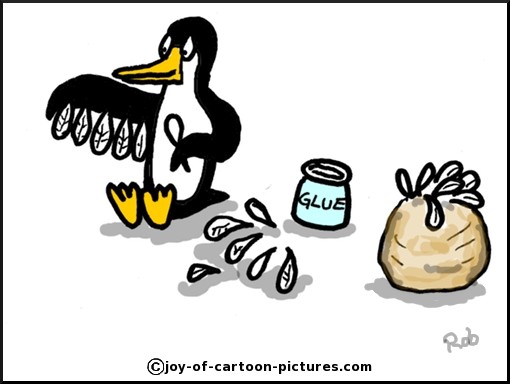The Socionomic Mindset
Post on: 16 Март, 2015 No Comment

When patterns are broken, new worlds emerge.
Tuli Kupferberg(1923-2010)
* * ** *** ***** ********
Our world is much more complex than we think it is, and deceptively so. We are bombarded with enormous amounts of information, but somehow manage to act on it without consciously shutting down, even as the speed and quantity of information grows. The reason for this capability is our mind’s heuristic processing of information (patterned simplification of decision making). This process precludes us from having to analyze every detail of every decision required in the course of our daily lives. Civilization and the human experience as we know it would probably not be possible without heuristic thought processes.
These patterned-based assumptions can be very wrong when applied in the realm of decision analysis as Kahneman and Tversky have shown in their widely publicized research . Even worse, these faulty ways of thinking can be reinforced by society-wide “groupthink” that is often apparent in parts of academia and main stream news media. The tendency for such herding behavior is explained by socionomics, a theory developed Bob Prechter . Socionomics teaches us that the societys compulsion to herd is especially strong near a major shift in social mood, where our subconscious heuristic patterning of herding for perceived safety can let us down.
This chart from the article Are Crowds Wise- or Mad? by Alan Hall in the June 2011 edition of The Socionomist shows the power of herding. As shown, opinion and stock price trend to converge at the extreme and is most focused at lows. Convergence is also in play during highs, but tends to be more diffuse and rounded according to Elliott wave experts.
An exogenous cause mindset is one that explains social mood as a function of external events such as a bad economy, and is an underlying assumption for many theories of finance and economics. This mindset is likely a derivative of, or subconscious misapplication of heuristic intuition. Socionomics, however, states that social mood drives social action. This is a very counter-intuitive approach that uses Elliott wave analysis of “sociometers” such as the stock market and observations of social expression to assess social mood. Therefore, the socionomic premise helps us avoid the pitfalls of our natural inclination for flawed heuristic decision analysis. When correctly applied, the socionomic perspective is not prone to heuristic failure .
When the compulsion to herd is very strong, people will vehemently reject theories such as socionomics that do not conform to “conventional wisdom” (deemed correct by unanimous social opinion) regardless of merit, in order to preclude a source of cognitive stress. Positive social mood drives social action to prop up broken systems by generating sufficient collective optimism to temporarily sustain the unsustainable. As we are all potentially susceptible to social mood, individuals should exercise great caution during these periods to avoid following the herd off of the cliff.
Another concept called confirmation bias adds to the propensity for bad decisions at critical social mood trend changes. Confirmation bias occurs when evidence to the contrary is either not observed or sufficiently “long-lived” to impact people’s conscious perspectives. Interim corrections during a long bull market are explained away with exogenous cause “magic bullet” theories for why the correction occurred. The myriad of explanations for the “ Flash Crash ” is a good example of this flawed thinking. When the upward trajectory of social mood quickly resumes, people return to their old ways of thinking with more conviction than before. Waning social mood eventually disrupts these old ways of thinking and produces a spiral of fear and uncertainty for the future just as the Elliott wave structure predicts. Once social mood reaches a bottom, society can begin a new growth cycle.

Current Assessment. Intermediate wave (2) up, as of February 9, 2012, is nearing completion. Echoes of optimism in the current wave structure are evident as the recently announced Facebook IPO harkens back to the tech bubble of the late 90s rejuvenating the old excitement for new technologies. This suggests that Elliott Wave Internationals (EWI) position in the Elliott wave progression is correct. Along with a century’s worth of confirmation bias in the continuity of our social systems of operation, social mood has formed a society so overwhelmingly convinced of future events that they collectively ignore visible warning signs. This complacency and failure to prepare stems from the environment of unfounded optimism in social structures, and sets the stage for major systemic failure in the next turn down. While oceans of debt continue to wreak havoc in the background, ingrained hope is plentiful and cognitive dissonance is rampant. The last vestiges of hope and do nothing will remain until the final stages of the decline when the reality of economic collapse is all around them. This mass social capitulation provides the necessary environment for new patterns of growth to emerge.
Recommended Action. As individuals and small organizations, we should work to develop a socionomic mindset. We have the capacity to assess social mood and improve our probability for a better outcome. When you realize that exogenous cause theories of human social behavior are broken, a socionomic mindset emerges as your best strategic tool to survive and prosper in the new world ahead.
Shawn Inman, The Socionomic Strategist
Postscript
Tuli Kupferberg’s wise quote at the beginning of this post inspired much of what I have written about. I discovered this quote prior to having knowledge of his counterculture persona, and although I do not personally find the majority of his work appealing (caution: he works hard to shake your sense of social norms and can be quite explicit), it demonstrates the point that wisdom can be found in places we do not expect, most especially, outside the patterns of our own conscious experience.














